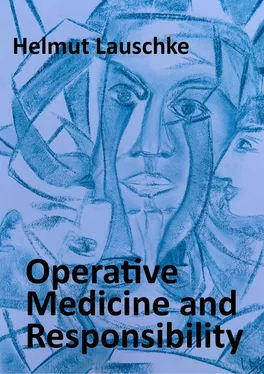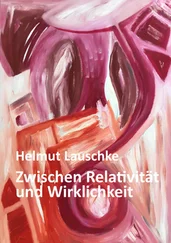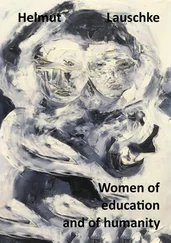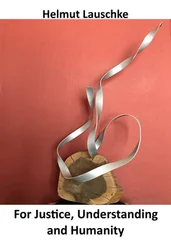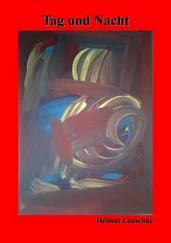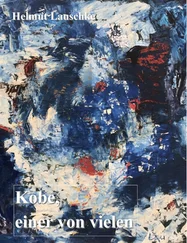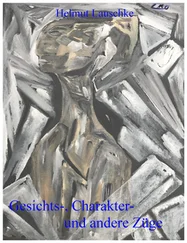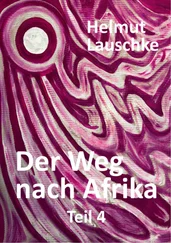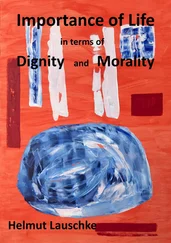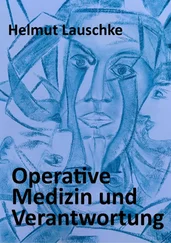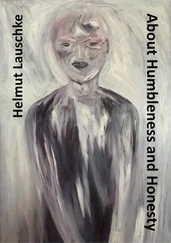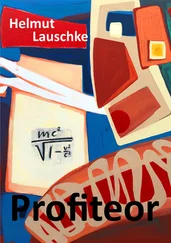Helmut Lauschke
Operative Medicine and Responsibility
Dialectics of a Surgeon
Dieses ebook wurde erstellt bei

Inhaltsverzeichnis
Titel Helmut Lauschke Operative Medicine and Responsibility Dialectics of a Surgeon Dieses ebook wurde erstellt bei
Introductory Thoughts
Progress in people as a personality
Truth and accountability
Everyday life of the active doctor
The straight lines of motivation
The girl Kristofina, who was struck by lightning
Emergency delivery by caesarean section and border crossing on donkey cart with severe abdominal injury
The climatic conditions at work
The man with advanced gastric cancer
Shortly after midnight
The girl with bone sarcoma of the arm
The shadowy faces of the night raids
From the surgical burden
The importance of the foot for freedom of movement in the desert
From severing limbs
Military order overrides medical argument
The man whose right leg flew away
From a letter of a colleague and friend
Impressum neobooks
Dialectics of a Surgeon
WHAT IS TIME? IF NOBODY ASKS ME, I KNOW. IF I WANT TO EXPLAIN IT TO SOMEONE WHO ASKS, I DON'T KNOW. AURELIUS AUGUSTINUS by Hippo (354-430), CONFESSIONES, LIBER XI, CAPUT XIV
The philosophy of the present time is guessing the essence of things in their truth from the state of the imperfection of knowledge and the constantly compromised virtue of the will to know. Otherwise and in perfection we would have reached the state of knowledge. But it is precisely the imperfection that gives the permanent impetus to philosophical thinking, why the knowledge of the truth of things and around them is so problematic.
Philosophy deals with the things of the present. Since all things slide into the past and the things of the future are not visible and predictable, it is the movement in the passage of time that causes the changes in things that the truth of a thing may apply for the moment, but in the long run. The present of the future cannot be determined due to the permanent change and changeability.
The permanence of the change in the world and the things in it (in permanent upheaval) makes it impossible to find, pursue and define the truth of the thing over a longer period of time.
The philosophy also includes the science of the will, which is a rather unsteady 'organ' (the organ of swaying), that on the straight lines of thought and their 'access routes' predictable, but mostly unpredictable, short circuits, interruptions and breaks in the thought process take place hinders the way of recognizing and realizing the truth and is the cause of the fact that the thought process breaks off prematurely.
The unsteady in thinking and in the will to think contradict the absolute line of thought in mathematics, which gives philosophy the shine and cleanliness of flawlessness. Free of irrational stumbling blocks, mathematics raises the character of philosophy to the height of sublimity above all the small things with errors in thinking and acting.
Concept of truth: In his attempt at a solution, Augustine anticipates René Descartes' cogito ergo sum by stating that the existence of the thinker (doubting) is indubitable: “If someone doubts that he lives, remembers, has insights, wants, thinks, knows and judges? [...] Even if someone has doubts about what he wants, he cannot doubt these doubts themselves." - DE TRINITATE X, 10
Augustine sums it up with “si enim fallor, sum”: “Because (even) if I am wrong, I am (nevertheless).” He uses the ideal truths of mathematics as a model, since the sensory perceptions because of their unreliability and the changeability of the external world do not have these properties. Then the Pythagorean theorem comes to mind: The number is the essence of all things.
Augustine seeks truth in the human spirit: “Do not look outside! Return to yourself! The truth resides within a person. […] The understanding does not create the truth, but finds it.” - DE VERA RELIGIONE 39, 72F.
The bottom of all truth are the eternal ideas (and the breath to discover them) that, according to Augustine, exist in God's Spirit. As with Plato, with Augustine the archetypes have the ontologically highest status; they are the essential foundations of all things. The truth becomes available to man in the mediated enlightenment of the spirit by God (illumination or irradiation theory).
Galileo (1564-1642): Dialogo sopra i due massimi sistemi del mondo, (Florence 1632). The divine spirit (mundus intelligibilis) "radiates" these ideas and rules directly into the human spirit, since the human spirit, other than its material body, is created in God's image (imago dei). The truth is not found outside of man, but in man himself.
Time conception: Augustine speaks about the three times: the present of the past, the present of the present and the present of the future. According to Augustine, the past, present and future as such do not exist:
“How can you say that [the past and future times] are when the past is no longer and the future is not yet? The present time, however, if it were always present and did not merge into the past, would no longer be time, but eternity."
Rather, the past is a memory in the present, and the future an expectation in the present, while the present itself is a moment passing by in our minds from the future into the past. We measure time based on an impression.
The "impression which the passing things [in our minds] produce and which, when they have passed, remains him, the present [we measure], not what has passed and produced it."
As a modern derivation: Time as such cannot be grasped by the mind, even if we live and die in and with it. It may be the breathing that reminds of the time with every breath and 'knocks' and with the 'knocking' (from life) pushes and penetrates into the time that the person breathes - especially when exhaling - the impression of the time gets.
Time can then be imagined as a hall of the world through which man carries his life and drives off.
The Augustinian understanding of time thus contains the subjective component of time, since we remember the time that has passed as an impression, i.e. we compare different periods of time we have experienced with each other and thus arrive at subjective statements. For example, one time occurred longer than another. We cannot measure future things because we know nothing about them and cannot say anything. Only when they pass us by and we have gained an impression through them we can decide for ourselves whether the impression was longer or shorter.
Time is inextricably linked with things. Things work in and through the media of time, they give imprints into time. In this way they make time perceptible and measurable and, as it were, visible, as long as things work outward through them in activities and inward in breathing and thinking. As if things without time and time without things cannot be “representational”. The creation of time and thing has already taken place, whether simultaneously or one after the other. In the development of the process, the time becomes intellectually perceptible and in the course of the time it becomes visible and measurable. Time can be indented like an amorphous mass; it is the filling of and the framework for all things that have to do with life.
“If nothing passed, there would be no past time; if nothing came to us, there would be no future time; would be nothing at all if there was no present time."
Читать дальше
